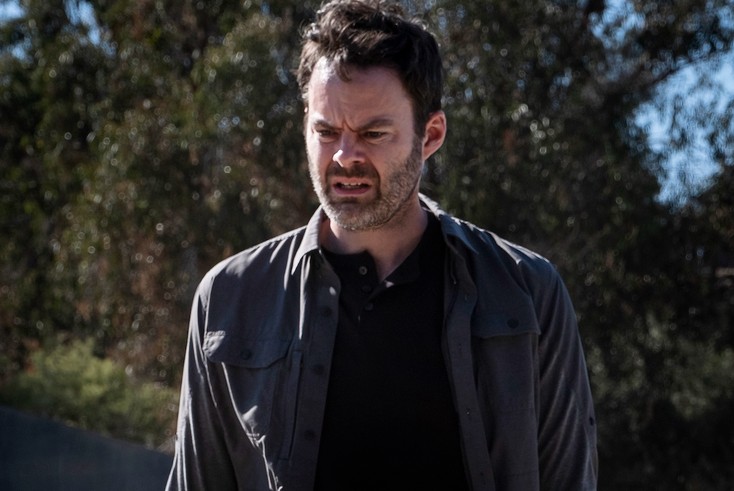Just how big is Warner Bros. Discovery’s debt problem?

Warner Bros. Discovery has over $53bn in debt. How big of an issue is it for the recently-merged company?
“The ideas of debtor and creditor, as to what constitutes a good time, never coincide,” PG Wodehouse once wrote. It’s certainly been an interesting time of late for Warner Bros. Discovery — the company created earlier this year from AT&T’s spun-off WarnerMedia and merger with Discovery.
However, in the new venture’s first financial report since the merger, what stood out was the size of the company’s debt, much of which originates from WarnerMedia.
Warner Bros. Discovery reported net leverage — calculated by dividing net debt by the sum of the most recent four quarters of adjusted Ebitda (its measure of profit) — of 5.0x.
This is too big for a media company, according to TMT analyst and investor Alex DeGroote. “The ratio should not be more than 3x, in my book,” he warns.
Brian Wieser, GroupM’s global president for business intelligence, adds: “In general, nobody wants to see a media company of this size with this amount of debt”.
Warner Bros. Discovery has stated its goal is to reduce its net leverage to between 2.5x and 3.0x. A close comparison sees Comcast’s net leverage at half (2.5x) of Warner Bros. Discovery’s, according to data platform Finbox, with Disney’s at 2.2x.
The trouble with rising interest rates
Looking at Warner Bros. Discovery’s financial situation through the lens of its debt can help us understand how its leadership is looking for places to cut costs, especially in an era of rising interest rates.
“Rising interest rates will also affect the interest payable by companies to their creditors, and will reduce $¥£ spend on content and new projects”, says DeGroote.
Earlier this summer, for instance, HBO Max was ordered to cease its original productions throughout most of the European continent. And just weeks after the merger completed in April, the heavily marketed CNN+ was completely disbanded before it could get its feet off the ground, let alone test what was attracting subscribers.
Warner also already apparently burned through $90m on production costs before controversially shelving Batgirl, a decision it attributed to “focusing on quality” (as opposed to quantity) as it reimagines its DC properties.
However, on the company’s recent earnings call, which Wieser referred to as “optimistic”, its leadership did not talk about cutting content. Instead, executives reaffirmed commitments to continual investment in its core streaming, networks, and studios businesses. Just this week, HBO Max revealed newly-redesigned mobile and desktop apps to improve its user experience.

Bill Hader in HBO’s Barry, image from HBO and WarnerMedia.
“If you take them at their word, they’re really counting on attempting to prop up the traditional [networks and studios] business,” says Wieser. But this is despite the “old model” increasingly losing favor with consumers who prefer churning through streaming services to find the specific content they like on-demand without having to pay for bloated cable packages.
Though streaming is the future, Wieser estimates that it is a “20% margin business”, compared to the higher margins seen in legacy models. The gamble that companies are making, then, is that global expansion is possible via streaming where it wasn’t before, and thus net profits should increase over time as streaming services are introduced to new markets.
And while fans may decry changes to the highly-regarded HBO Max lineup as it awkwardly merges with non-complimentary Discovery+ content, “you can treat your customers badly, but customers may keep coming back,” Wieser remarks.
The decade of ‘free money’ is now at an end
CFO Gunnar Wiedenfels downplayed the severity of the company’s debt in Warner Bros. Discovery’s earnings call last week, noting that the company will have paid off $6bn by August and that most debt is financed long-term at fixed interest rates.
However, debt will remain a struggle for the company in the near term, limiting spending it might otherwise have liked to partake in if it wants to adequately compete against streamers with big coffers, like Apple and Amazon.
While Warner Bros. Discovery has around $4bn in cash on hand, as of April, Apple had $35bn in cash, cash equivalents, and restricted cash, and can therefore easily outspend other hamstrung telecom companies to develop and potentially dominate streaming competition. Amazon has over $60bn in cash reserves.
“They wanted the empire of a bigger business, and the potential to do more bigger things than could be done with Discovery in its prior state,” says Wieser, adding that from the vantage point of Discovery, it is in a much more advantageous position now, even despite the debt taken on to complete the merger.
“They’re trying to thread a needle to hope for the best with revenue growth and reduce costs wherever they can. […] And worst case, they still have the [WarnerMedia] properties.”
While Wieser is not necessarily sold on Warner Bros. Discovery’s supposed forward-looking strategy to squeeze what they can out of the “old model” while reducing costs wherever possible, it remains to be seen if leadership can pull it off.
After all, the signal out of Warner Bros. Discovery is that of ruthlessly reining in spending done without rock-solid investment strategy behind it.
As DeGroote says: “We’ve had over a decade of ‘free money’—this is now at an end”.
Editor’s note: This story was amended after publication after originally reporting the debt as $53m. Corrected with apologies.



